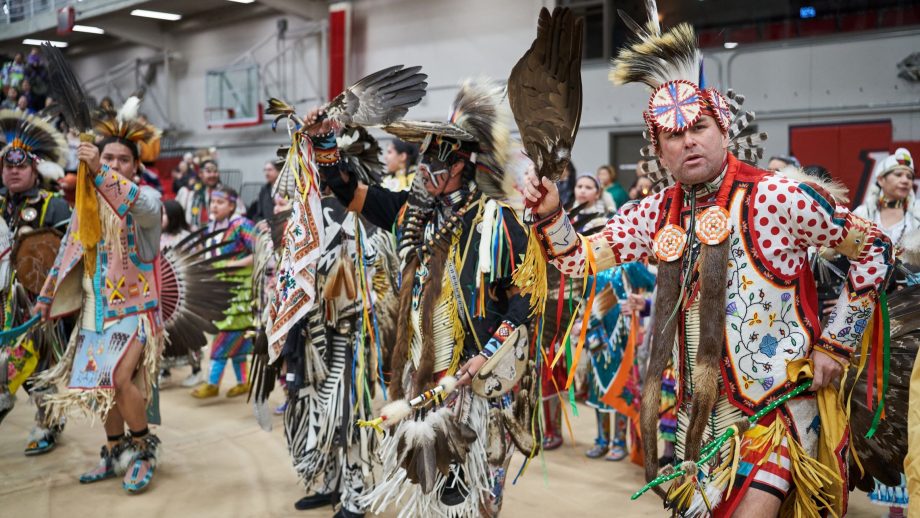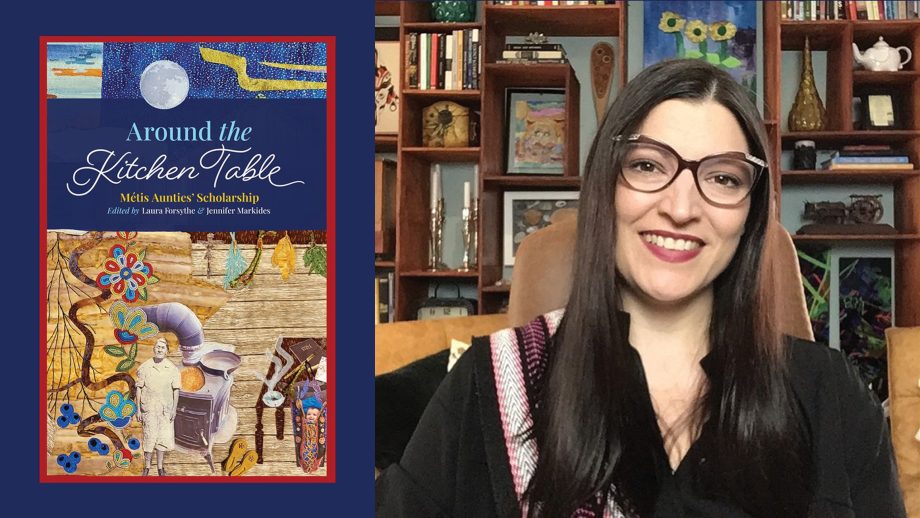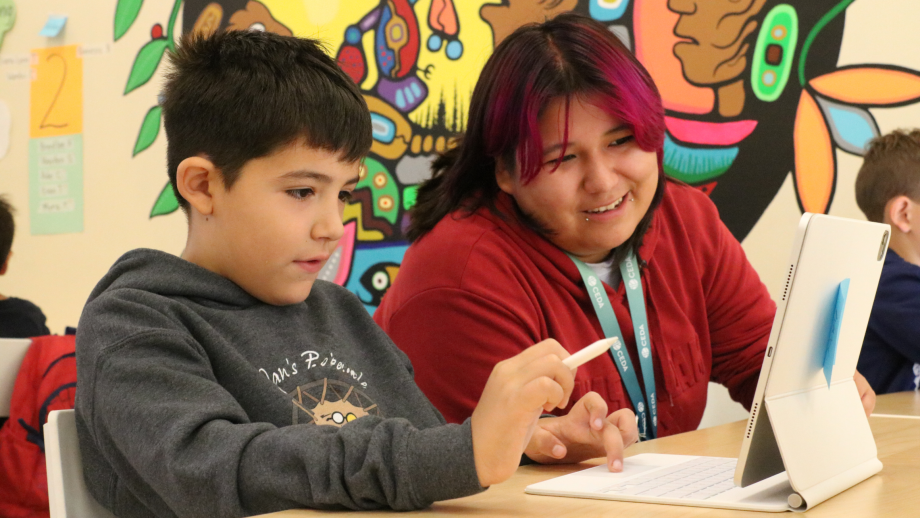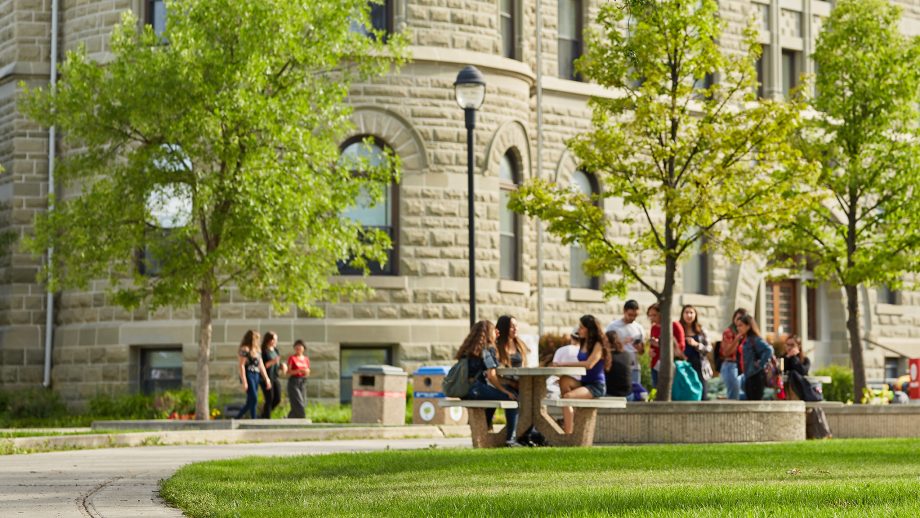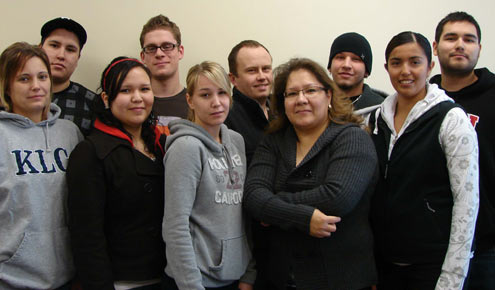 WINNIPEG, MB – Betsy Mousseau has three young daughters, eight months of police preparation under her belt and a dream. Her goal is to become a police officer and even though she’s a few weeks shy of gradating from the innovative Indigenous Police Preparation Diploma program at The University of Winnipeg, she’s already landed a job as a corrections officer with the Manitoba government. Mousseau is one of a dozen students in the first class who are completing the diploma program at the end of April.
WINNIPEG, MB – Betsy Mousseau has three young daughters, eight months of police preparation under her belt and a dream. Her goal is to become a police officer and even though she’s a few weeks shy of gradating from the innovative Indigenous Police Preparation Diploma program at The University of Winnipeg, she’s already landed a job as a corrections officer with the Manitoba government. Mousseau is one of a dozen students in the first class who are completing the diploma program at the end of April.
“We’ve covered so much since last September, gaining skills such as doing presentations and interviews, learning to work as a team, and we are very focused on what abilities a police force is actually looking for,” said Mousseau. “That includes physical abilities. Three days a week we jumped hurdles and sprinted and practiced controlled falls. We’ve gained confidence.”
The Indigenous Police Preparation Diploma, offered through UWinnipeg’s Division of Continuing Education, is the first of its kind in Manitoba. Funding from the Government of Canada allowed The University of Winnipeg, the RCMP and the Manitoba Métis Federation’s Louis Riel Institute to launch the results-oriented police preparation training program in partnership with the Assembly of Manitoba Chiefs and the Winnipeg Police Service. The program is specifically designed to assist First Nations, Métis and Inuit people to qualify as police candidates or obtain related careers. Another unique aspect of the Diploma program is graduates who choose to continue their studies may apply some of their credits towards a UWinnipeg undergraduate degree.
Justin Smith is a 22-year-old who commutes from Lorette to attend the program. “I have always been interested in policing but I was not sure how to go about joining a force. Now I have developed contacts and very practical tools, like doing mock interviews with police recruiters so I know what to expect. This diploma program has been really good, and I have a much better understanding of what it takes not just to join a force but to be an effective police officer.”
Problem-solving skills polished
Smith’s immediate goal is to obtain a summer student position with the RCMP. Both Smith and Mousseau point out they have also received invaluable real-life experience by volunteering with the Downtown BIZ patrol during their studies.
“That really allowed us to develop problem-solving skills, communication skills and see what’s it’s like to help people on the street who are often coping with addictions. We learned to be very professional and keep our composure,” said Smith.
UWinnipeg is dedicated to leading the way in Canada to create a learning experience that is both relevant and respectful to all our Indigenous peoples Peoples population. An Advisory Committee consisting of members from the Assembly of Manitoba Chiefs, the Manitoba Métis Federation, the RCMP, Winnipeg Police Service, Manitoba Justice and UWinnipeg ensures the curriculum continues to be relevant and applicable.
The Diploma program requires eight months of full-time study. A second class will be offered in September 2009. Find out more about the Indigenous Police Preparation Diploma program at http://www.uwinnipeg.ca/index/dce_ippdinformation.
A free, public Information Session about the diploma program will be held:
Tuesday, April 28
7:00 p.m.
Room 2M70 (Manitoba Hall, main campus, 515 Portage Avenue)
Contact:
n.stokes@uwinnipeg.ca
204.982-1811
MEDIA CONTACT
Diane Poulin, Communications Officer, The University of Winnipeg
P: 204.988.7135, C: 204.293.1167, E: d.poulin@uwinnipeg.ca

